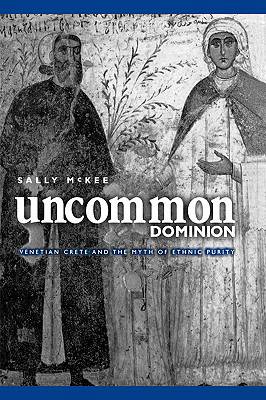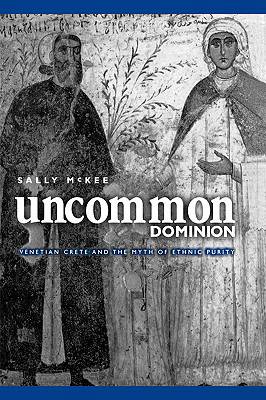
- Retrait gratuit dans votre magasin Club
- 7.000.000 titres dans notre catalogue
- Payer en toute sécurité
- Toujours un magasin près de chez vous
- Retrait gratuit dans votre magasin Club
- 7.000.0000 titres dans notre catalogue
- Payer en toute sécurité
- Toujours un magasin près de chez vous
Description
From 1211 until its loss to the Ottomans in 1669, the Greek island we know as Crete was the Venetian colony of Candia. Ruled by a paid civil service fully accountable to the Venetian Senate, Candia was distinct from nearly every other colony of the medieval period for the unprecedented degree to which the colonial power was involved in its governance.
Yet, for Sally McKee, the importance of the Cretan colony only begins with the anomalous manner of the Venetian state's rule. Uncommon Dominion tells the story of Venetian Crete, the home of two recognizably distinct ethnic communities, the Latins and the Greeks. The application of Venetian law to the colony made it possible for the colonial power to create and maintain a fiction of ethnic distinctness. The Greeks were subordinate to the Latins economically, politically, and juridically, yet within a century of Venetian colonization, the ethnic differences between Latin and Greek Cretans in daily material life were significantly blurred. Members of the groups intermarried, many of them learned each other's language, and some even chose to worship by the rites of the other's church. Holding up ample evidence of acculturation and miscegenation by the colony's inhabitants, McKee uncovers the colonial forces that promoted the persistence of ethnic labeling despite the lack of any clear demarcation between the two predominant communities. As McKee argues, the concept of ethnic identity was largely determined by gender, religion, and social status, especially by the Latin and Greek elites in their complex and frequently antagonistic social relationships. Drawing expertly from notarial and court records, as well as legislative and literary sources, Uncommon Dominion offers a unique study of ethnicity in the medieval and early modern periods. Students and scholars in medieval, colonial, and postcolonial studies will find much of use in studying this remarkable colonial experiment.Spécifications
Parties prenantes
- Auteur(s) :
- Editeur:
Contenu
- Nombre de pages :
- 288
- Langue:
- Anglais
- Collection :
Caractéristiques
- EAN:
- 9780812235623
- Date de parution :
- 20-09-00
- Format:
- Livre relié
- Format numérique:
- Genaaid
- Dimensions :
- 160 mm x 231 mm
- Poids :
- 612 g

Les avis
Nous publions uniquement les avis qui respectent les conditions requises. Consultez nos conditions pour les avis.






